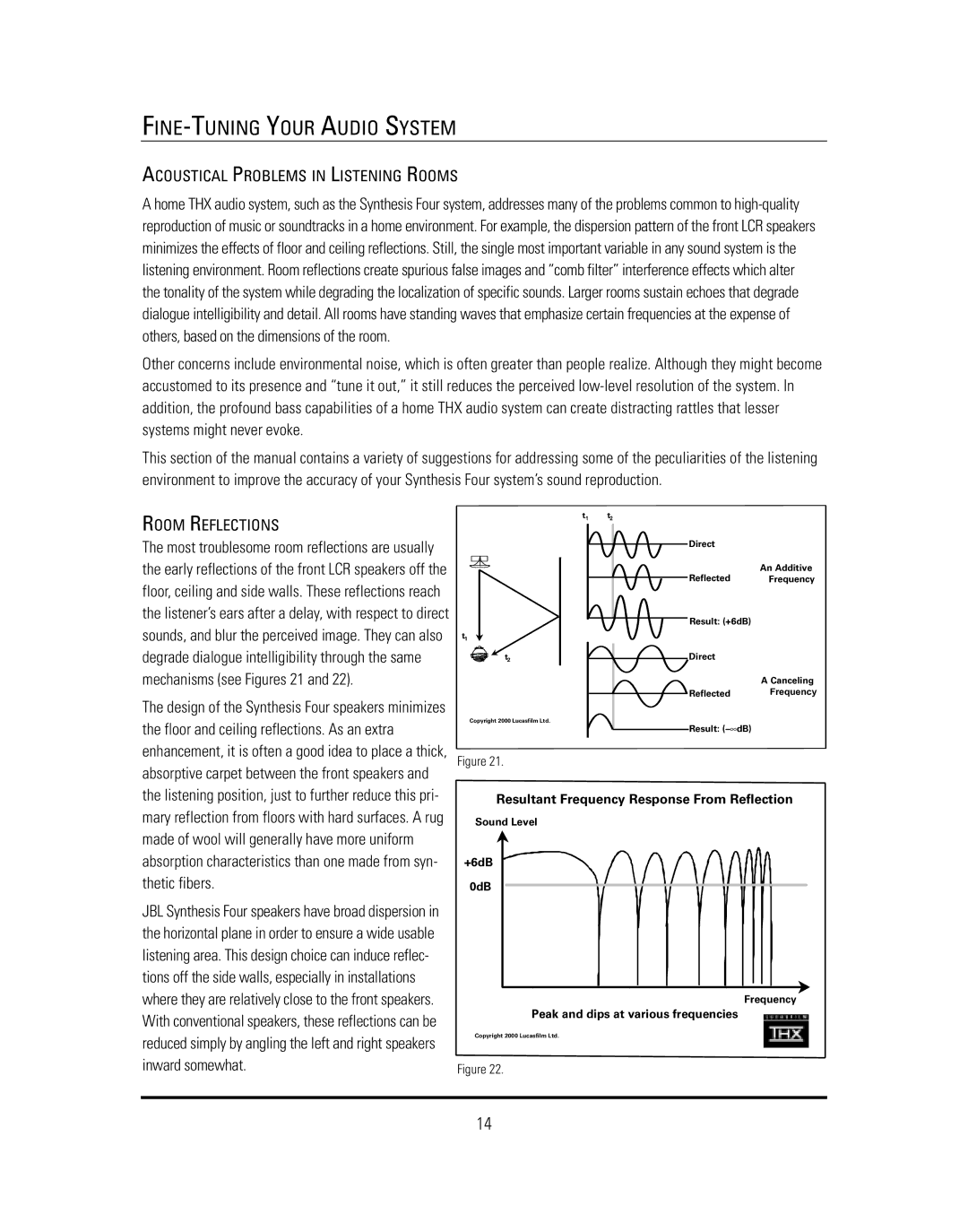
FINE-TUNING YOUR AUDIO SYSTEM
ACOUSTICAL PROBLEMS IN LISTENING ROOMS
A home THX audio system, such as the Synthesis Four system, addresses many of the problems common to
Other concerns include environmental noise, which is often greater than people realize. Although they might become accustomed to its presence and “tune it out,” it still reduces the perceived
This section of the manual contains a variety of suggestions for addressing some of the peculiarities of the listening environment to improve the accuracy of your Synthesis Four system’s sound reproduction.
ROOM REFLECTIONS
The most troublesome room reflections are usually the early reflections of the front LCR speakers off the floor, ceiling and side walls. These reflections reach the listener’s ears after a delay, with respect to direct sounds, and blur the perceived image. They can also degrade dialogue intelligibility through the same mechanisms (see Figures 21 and 22).
The design of the Synthesis Four speakers minimizes the floor and ceiling reflections. As an extra enhancement, it is often a good idea to place a thick, absorptive carpet between the front speakers and
t1 t2
t1
t2
Copyright 2000 Lucasfilm Ltd.
Figure 21.
Direct
An Additive
Reflected Frequency
Result: (+6dB)
Direct
A Canceling
Reflected Frequency
Result:
the listening position, just to further reduce this pri- mary reflection from floors with hard surfaces. A rug made of wool will generally have more uniform absorption characteristics than one made from syn- thetic fibers.
JBL Synthesis Four speakers have broad dispersion in the horizontal plane in order to ensure a wide usable listening area. This design choice can induce reflec- tions off the side walls, especially in installations where they are relatively close to the front speakers. With conventional speakers, these reflections can be reduced simply by angling the left and right speakers inward somewhat.
Resultant Frequency Response From Reflection
Sound Level
+6dB |
0dB |
Frequency |
Peak and dips at various frequencies
Copyright 2000 Lucasfilm Ltd.
Figure 22.
14
